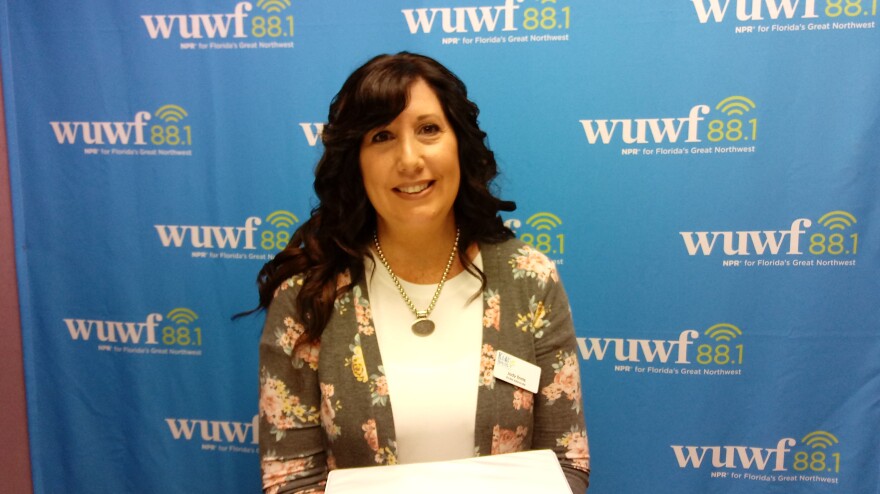Child advocates and law enforcement officials in Santa Rosa County have organized a task force on human trafficking.
CAUTION: Some of this story may be disturbing to some readers.
“I was 13 when I met my boyfriend. He said I was beautiful, and I believed him,” said a human trafficking victim in a public service announcement in Florida.
“He said I could be a model, and I believed him; he made me feel so good about myself,” said the unidentified female. “It was my real-life fairy tale, and I believed all of it.”
Almost 1,900 cases were reported in 2016 in Florida, a 54 percent increase from the previous year, ranking the state third in the nation.
Six of the victims were in Santa Rosa County says Jody Ennis, a victim advocate at Santa Rosa Kids' House and a task force organizer.
“There’s [sic] not a whole lot of documented cases in Santa Rosa County,” said Ennis. “It’s not because we don’t believe it’s happening here, it’s just that we don’t believe our officers and all other agencies that would be involved have the education to identify and prosecute it.”
Kids' House has received a $50,000 grant from the National Children's Alliance, for training authorities on how to best identify and help human trafficking victims. That training, Ennis says, involves a number of areas.

“How to identify it; what you’re going to do once you identify it. You’re going to have to have therapists come into play,” said Ennis.
Victim advocates call human trafficking modern-day slavery. And while sex is a major part of human trafficking, there’s also labor trafficking.
“You can find them in different types of restaurant work,” Ennis says. “You might see them pull up to the restaurant late at night; picking up several employees, taking them off somewhere. The employees may not be able to communicate with you; that’s a big key right there, if they’re not allowed to speak to you.”
Other forms of labor trafficking can include peddling rings; traveling sales crews, or any activity where somebody benefits from the sale or trade of a human being. And the thing is: human trafficking is not a respecter of age, race, ethnicity, or socio-economic status.
“It was horrendous; I never thought a human being would go through what I went through, and survive.”
“Sara” – not her real name – appearing in a video produced by the Florida Coalition against Human Trafficking. She was kidnapped in her early teens and was forced into the sex trade, along with enduring both physical and mental abuse.
“Having gasoline poured on me while they held the match,” she says. “Being kicked and stomped on, being [dragged] by my hair,” said Sara. “Having 15 guys circle me and stomp me – and I mean literally stomp me.”
Traffickers are also using technology. The days of pulling up to a victim in a vehicle and snatching them from the street is being replaced with finding them online. Once traffickers have their target, Ennis says they mark them in a process called “branding.”
“Sometimes the traffickers will actually brand their victims with some type of tattoo or barcode -- different symbols you might find on the body, Ennis says. “Sometimes they’ll even do it on the inner bottom lip; underneath the hair on the back of the neck. Most of them are [in] usually hidden places.”
And parents need to recognize the tell-tale signs that their kids may be connecting with some of the wrong people.
“Teenagers who run away who are acting out; or children in particular that might be acting out and having contacts with people online that they shouldn’t be having contacts with,” said Ennis. ‘That should be a big red flag.”
Anyone who suspects a human trafficking situation should contact the National Human Trafficking Hotline at 1-888-373-7888; the Florida Child Abuse Hotline on 1-800-962-2873, or your local law enforcement agency.


